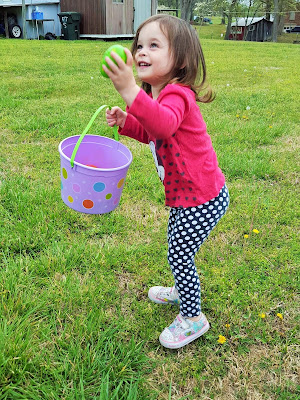- had a strong interest in potty training. He was showing many signs of readiness long before we did the 3-day method.
- had previously been in daycare, where he watched his peers use the potty. He then started preschool two mornings a week where we was encouraged to use the toilet.
- had been sleeping in a twin size bed for over eight months before we started potty training. If he needed to pee in the middle of the night, he simply woke up and walked to the bathroom.
- had stopped taking naps four months before we did the three day potty training.
- had been dressing and undressing himself for many months. He was used to wearing pull ups for preschool and was comfortable taking them on and off.
- was used to being home. He's always enjoyed playing at home. Being stuck at home for 3 days wasn't a big deal because he wasn't used to going somewhere every single day.
- never had to be in a car for a long period of time. His preschool was only two days a week and was five minutes from the house.
- was potty trained in the winter. He wasn't outside in the heat needing extra water. It was dark by 5:30 p.m. It was easy to restrict his drinks before bedtime.
- had multiple little potties that were easily accessible. We only needed one little potty upstairs and one downstairs, in addition to toddler seats to place on top of the regular toilets. Jackson was comfortable using any of them.
- didn't have any pressure to potty train by a certain age. While it was expected that Jackson be potty trained if he was in the 3 year old classroom at preschool, that was nine months away. There was no rush or stress that he needed to be potty trained.
- had a great incentive system with a marble jar. Jackson put marbles in a jar every time he used the potty. Once the jar was full, he was able to pick a prize.
- was only one child. It was easy to follow his every move. We could rush him to the potty if he was starting to have an accident.
- aren't nearly as interested in potty training. They weren't even telling us when they peed or pooped in their diapers.
- have had zero exposure to seeing their peers use the potty.
- are still in cribs
- take a nap several days a week. On the days they don't nap, they still spend time in their crib with books or quiet toys.
- have never used pull-ups. James hasn't even mastered taking his pants on or off.
- are accustomed to going to the park, museum, library, etc every single day. The more time we spend at home, the more fights they have over toys.
- have to sit in the van for over 45 minutes four days a week to pick up Jackson, wait through car line, and return home.
- have been playing outside in the warm spring weather. The sun doesn't set 'til after 7:30 pm, so we also like to play outside before bed. I assumed this would be a benefit, but it just makes them thirsty. I want to keep them hydrated, but at the same time, we need to limit drinks before naps and bedtime.
- have to share potties. We have three little potties total, which means if all three are trying to use the bathroom, we have to rush to move them around upstairs, downstairs, or in other rooms.
- MUST be potty trained in four months. The only way they can attend full time preschool in August is if they are potty trained. The only way I can go back to work is if they are potty trained. The pressure is on! My stress is not helping their stress.
- have no incentives. We were going to do the marble jar or sticker chart, but I was overwhelmed setting everything up for three. This is just an excuse, of course, but further proof that I don't have my potty training affairs in order.
- are three individuals that don't always stick together. I've kept an eye on two of them but one will go downstairs and have an accident. The worst part is they may or may not tell me if they have an accident.
The trio are 32 months old. It's certainly not unreasonable to expect them to potty train. However, we are in the middle of Day 2 and I have such a negative attitude about potty training. It is not going smoothly. I may have a nervous breakdown within the next 24 hours.



























































